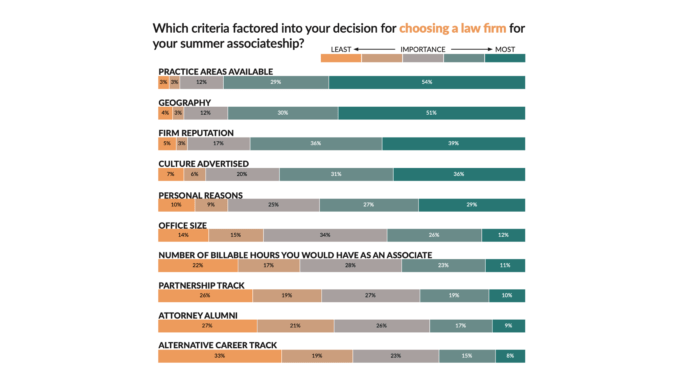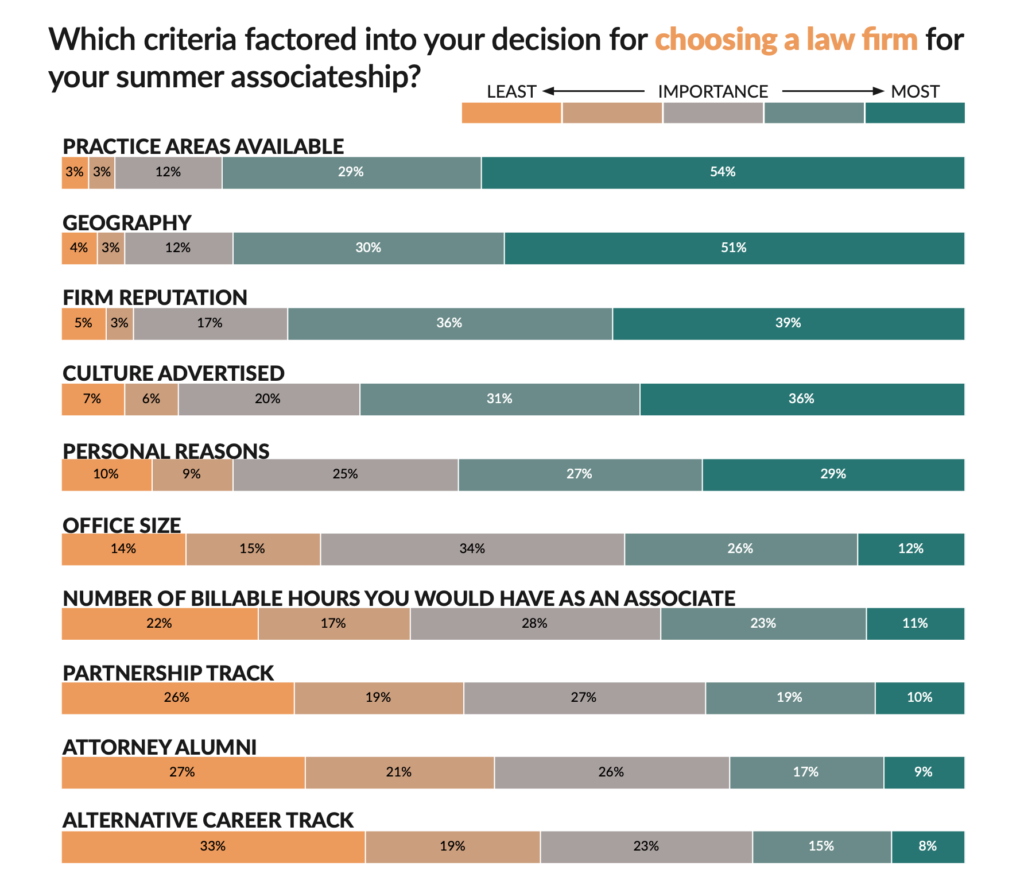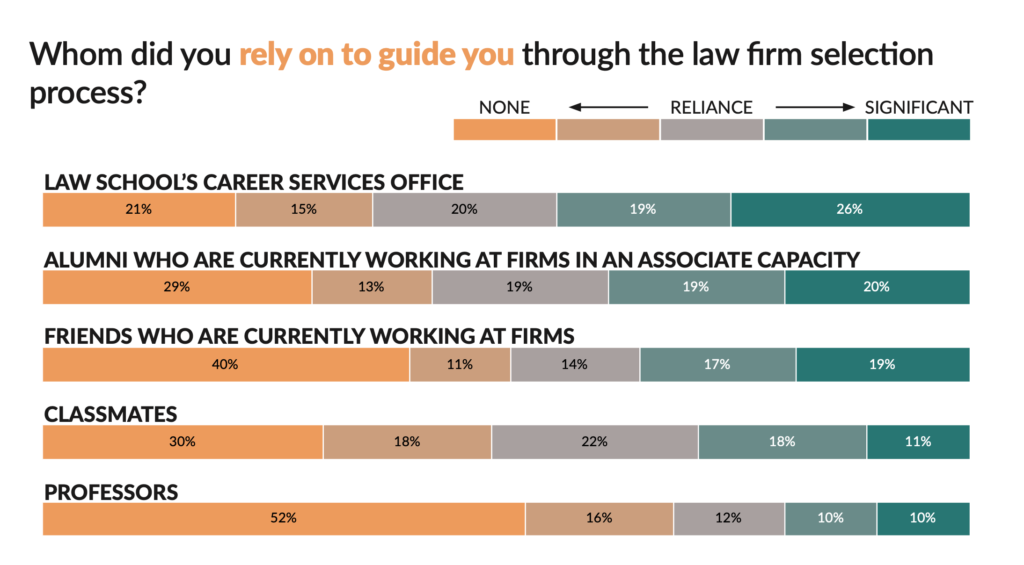
A new survey of US law students about why they choose certain law firms for summer associate roles suggests that many embrace the status quo of long hours and traditional careers, which tells us we should not assume the new generation are all pushing for change.
The LexisNexis Law 360 survey of 1,117 law students had plenty of data, but the two charts that really stood out for Artificial Lawyer are below.

The first one shows that the number of billable hours they will face when they eventually become full-time associates – based on the assumption where students do their summer stints is a reflection of the firm or type of firm they want to work at – is not really a big issue for many.
Despite plenty of discussion across all sectors of the economy about quality of life and the presumed idea that younger generations want more than just to work, only 34% of the sample said billable hours targets were notably important (the green parts of the chart), i.e. the majority didn’t see it as very important.
I.e. 39% didn’t see hours as that important and 28% didn’t seem that bothered either way. At the same time, only 23% said the opportunity for an alternative career path was of notable importance to them.
OK, let’s unpack a few things. As noted, it’s often said that the new generation of students coming through law school now want different things, that their view of work/life balance is really diverging compared to older generations – and that probably is true for some – but clearly not all. The data suggests that a significant part of the survey group simply accepted how things are – or at least have not really developed a strong opinion either way.
Why is this?
- Is it that they are badly informed and don’t know the realities of working in a Big Law firm? (But, this seems unlikely when you see the second chart, at least for a notable part of the sample.)
- That they just accept ‘that’s life in Big Law’. (Which is possible, but is a bit limited in terms of thinking ahead, as some of the very same people will in a few years’ time start to display signs of burnout, chronic stress and disillusionment.)
- That they do care and do know, but they are in denial. (This is also possible. Humans have an incredible ability to deny reality when it suits our purposes, and here the purpose is to get a great job as a commercial lawyer – and also pay off that insanely huge educational debt.)
This also links to the lack of interest in alternative careers. The reality is that the vast majority of any associate cohort will not be at the firm eight years later. This is because of the pyramidal business structure of law firms, which demands most fee earners leave before they hit the partner ranks – otherwise you’d end up with thousands of partners and the law firm would go bust. So, you’d think the majority would care about alternative career paths. But, nope.
Although ironically, there was some realism about the partnership track, which was only important to 29%. But, maybe it was too early to think about such things?
So, onto the second chart: where are law students getting their information from? 39% are relying a lot on people who are already at a law firm – and that should provide realistic information.

That said, a large group put an emphasis on listening to the law school’s career service – at 45%. The question is: are these services telling the students about the realities of commercial law life, or are they just telling them what qualifications they will need and how to write your application letter?
It’s a complex picture. But it seems fair to say that a substantial number of law students do know to some degree what actually happens in a Big Law firm, but as the data shows, very often they don’t seem focused on alternatives, or about work/life balance, i.e. many are just accepting the status quo – or at least don’t at this stage want to dwell on these areas, that is to say they may care really, but the practical necessity of getting a Big Law job and paying off those debts makes such views hard to express?
The key takeaway here is that although we tend to assume younger people want to change everything, plenty of law students – at least in the US – seem willing to go along with the status quo, even if their reasons for doing so may be multi-layered and complex.